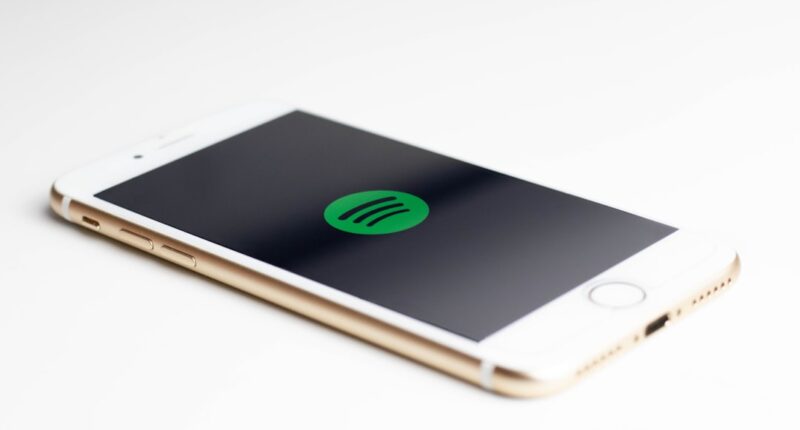The music industry is a complex and ever-evolving landscape that encompasses a wide range of players, from artists and musicians to record labels, promoters, and distributors. Understanding the dynamics of the music industry is crucial for anyone looking to make a mark in this competitive field. One of the key aspects of the music industry is the role of record labels, which are responsible for discovering, nurturing, and promoting new talent. These labels often have extensive networks and resources that can help artists reach a wider audience and achieve commercial success. However, with the rise of digital platforms and independent distribution channels, many artists are now choosing to bypass traditional record labels and take control of their own careers.
Another important aspect of the music industry is the role of music promoters and publicists, who play a crucial role in helping artists gain exposure and build their fan base. These professionals often have extensive contacts in the media and entertainment industry, which can help artists secure coverage in influential publications and media outlets. Additionally, the rise of social media and digital marketing has opened up new avenues for artists to promote their music directly to fans, bypassing traditional gatekeepers. Understanding these various aspects of the music industry is essential for anyone looking to navigate this complex landscape and build a successful career in music.
The music industry is also heavily influenced by trends and technological advancements, which can have a significant impact on how music is created, distributed, and consumed. For example, the rise of streaming platforms has fundamentally changed how music is consumed, with many listeners now opting for on-demand access to vast libraries of music. This shift has had a profound impact on how artists earn revenue from their music, with many now relying on streaming royalties as a primary source of income. Additionally, technological advancements such as AI and machine learning are also starting to play a role in how music is created and marketed, opening up new possibilities for artists and industry professionals alike. Understanding these trends and advancements is crucial for anyone looking to stay ahead of the curve in the music industry.
Key Takeaways
- The music industry landscape is constantly evolving and requires a deep understanding of its various components, including streaming platforms, record labels, and live events.
- Building a strong music promotion strategy involves leveraging social media, creating engaging content, and networking with industry professionals to increase visibility and reach.
- Utilizing music marketing tools and techniques such as email marketing, influencer partnerships, and targeted advertising can help artists connect with their target audience and build a loyal fan base.
- Navigating music industry databases and platforms like SoundExchange, ASCAP, and BMI is essential for managing royalties, licensing, and copyright protection.
- Submitting music to record labels and industry professionals requires a strategic approach, including crafting a compelling press kit, researching the right contacts, and following submission guidelines.
- Establishing relationships with key players in the industry, such as music supervisors, producers, and A&R representatives, can open doors for collaboration, placements, and career opportunities.
- Maximizing opportunities for getting your music heard involves performing live, participating in music festivals, and seeking out sync licensing and placement opportunities in film, TV, and advertising.
Building a Strong Music Promotion Strategy
Building a strong music promotion strategy is essential for any artist looking to gain exposure and connect with their target audience. One of the key elements of a successful promotion strategy is identifying your target audience and understanding their preferences and habits. By understanding who your fans are and where they consume music, you can tailor your promotion efforts to reach them more effectively. This might involve targeting specific demographics on social media, securing coverage in niche publications, or even organizing live events in key markets.
Another important aspect of a strong promotion strategy is creating compelling and engaging content that resonates with your audience. This might include music videos, behind-the-scenes footage, or even interactive experiences that allow fans to connect with your music on a deeper level. By creating content that captures the attention of your audience, you can increase engagement and build a loyal fan base that will support your music over the long term.
In addition to creating compelling content, it’s also important to leverage the power of social media and digital marketing to reach a wider audience. Platforms like Instagram, TikTok, and YouTube offer powerful tools for promoting music and connecting with fans, allowing artists to reach millions of potential listeners with just a few clicks. By developing a strong presence on these platforms and engaging with your audience regularly, you can build a dedicated fan base that will support your music and help spread the word to others.
Utilizing Music Marketing Tools and Techniques
In today’s digital age, there are countless music marketing tools and techniques available to artists looking to promote their music and connect with fans. One of the most powerful tools at an artist’s disposal is social media, which offers a direct line of communication with fans and potential listeners. Platforms like Instagram, Facebook, and Twitter allow artists to share updates, engage with fans, and promote their music to a global audience. By developing a strong social media presence and engaging with fans regularly, artists can build a dedicated fan base that will support their music and help spread the word to others.
Another important music marketing technique is email marketing, which allows artists to communicate directly with their fans and keep them informed about new releases, upcoming shows, and other important updates. By building an email list of dedicated fans, artists can create a direct line of communication that bypasses traditional gatekeepers and allows them to connect with their audience on a personal level. Additionally, email marketing allows artists to track engagement metrics and gather valuable data about their fan base, which can inform future marketing efforts.
In addition to social media and email marketing, artists can also leverage the power of influencer partnerships to reach new audiences and gain exposure. By collaborating with influencers in the music industry or related fields, artists can tap into established fan bases and reach potential listeners who may not have discovered their music otherwise. This can be especially effective for reaching niche audiences or breaking into new markets where traditional promotion channels may not be as effective.
Navigating Music Industry Databases and Platforms
| Platform | Features | Benefits |
|---|---|---|
| Spotify | Streaming, playlists, artist profiles | Reach a large audience, track performance |
| Apple Music | Streaming, radio, artist connect | Integration with Apple devices, global reach |
| SoundCloud | Upload tracks, connect with fans | Independent artist promotion, community engagement |
Navigating music industry databases and platforms is an essential skill for any artist looking to connect with industry professionals, secure opportunities, and promote their music effectively. One of the most important platforms for artists is streaming services like Spotify, Apple Music, and Tidal, which offer powerful tools for promoting music and reaching a global audience. By optimizing your presence on these platforms and engaging with fans regularly, you can increase your visibility and attract new listeners who may become dedicated fans.
Another important platform for artists is SoundCloud, which offers a unique opportunity to connect with other musicians, producers, and industry professionals in a more collaborative environment. By sharing your music on SoundCloud and engaging with other users in the community, you can build valuable connections that may lead to new opportunities for collaboration, promotion, or even record deals.
In addition to streaming services and collaborative platforms, artists should also be familiar with industry databases like ASCAP, BMI, and SESAC, which play a crucial role in ensuring that artists receive proper compensation for their work. By registering your music with these organizations and understanding how royalties are collected and distributed, you can ensure that you are being fairly compensated for your creative efforts.
Submitting Music to Record Labels and Industry Professionals
Submitting music to record labels and industry professionals can be a daunting task for many artists, but it’s an essential step in building a successful career in the music industry. One of the most important aspects of submitting music is creating a compelling press kit that showcases your talent, brand, and potential for commercial success. This might include high-quality recordings of your music, professional photos, a well-written bio, press clippings or reviews, and any other relevant materials that demonstrate your value as an artist.
Once you have a strong press kit in place, it’s important to research potential record labels or industry professionals that align with your musical style and career goals. By targeting specific labels or professionals that have a track record of success in your genre or niche, you can increase the likelihood of receiving a positive response to your submission. Additionally, reaching out to industry professionals through personal connections or networking events can help you stand out from the crowd and make a lasting impression.
When submitting music to record labels or industry professionals, it’s important to follow their submission guidelines carefully and respect their time and resources. This might involve sending physical copies of your press kit or demo recordings, or using digital submission platforms like SubmitHub or SoundBetter to streamline the process. By demonstrating professionalism and attention to detail in your submissions, you can increase the likelihood of receiving serious consideration from industry professionals.
Establishing Relationships with Key Players in the Industry

Establishing relationships with key players in the music industry is essential for any artist looking to build a successful career and secure valuable opportunities. One of the most important aspects of relationship building is networking, which involves connecting with other musicians, industry professionals, promoters, and influencers who can help support your career. This might involve attending industry events like conferences or showcases, joining professional organizations or online communities, or simply reaching out to individuals directly through social media or email.
In addition to networking with industry professionals, it’s also important for artists to build relationships with their fans and supporters who can help spread the word about their music. By engaging with fans regularly through social media, email newsletters, or live events, artists can build a dedicated fan base that will support their career over the long term.
Another important aspect of relationship building is collaborating with other musicians or producers who can help elevate your music and expand your reach. By working with established artists or producers on collaborative projects or features, you can tap into their fan base and gain exposure to new audiences who may not have discovered your music otherwise.
Maximizing Opportunities for Getting Your Music Heard
Maximizing opportunities for getting your music heard is crucial for any artist looking to build a successful career in the music industry. One of the most effective ways to get your music heard is by securing placements in film, TV shows, commercials, or video games, which can expose your music to millions of potential listeners around the world. By working with licensing agencies or directly reaching out to content creators in these industries, you can increase the likelihood of securing valuable placements that can elevate your career.
Another important opportunity for getting your music heard is by securing live performance opportunities at festivals, showcases, or industry events where you can connect with industry professionals and potential fans. By delivering compelling live performances that capture the attention of audiences and industry insiders alike, you can increase your visibility and attract new opportunities for collaboration or promotion.
In addition to securing placements in visual media or live performance opportunities, artists can also maximize opportunities for getting their music heard by leveraging digital marketing channels like social media ads or influencer partnerships. By targeting specific demographics or niche audiences through digital advertising or collaborating with influencers who align with your brand, you can reach new listeners who may become dedicated fans of your music.
In conclusion, navigating the complex landscape of the music industry requires a deep understanding of its various players, trends, tools, techniques, databases, platforms as well as strategies for submitting music to record labels while establishing relationships with key players in the industry. Maximizing opportunities for getting one’s music heard requires strategic planning across various channels including live performances at festivals or showcases while leveraging digital marketing tools such as social media ads or influencer partnerships. With dedication and perseverance in implementing these strategies effectively while staying ahead of trends in technology advancements within the industry will ultimately lead to success for any aspiring artist looking to make their mark in the competitive world of music.
If you’re interested in learning more about playlist pitching, you should check out this article on musicpromotion.tech. It provides valuable insights and tips on how to effectively pitch your music to playlists and increase your chances of getting noticed by curators. This article is a great resource for independent artists looking to boost their music promotion efforts.
FAQs
What is playlist pitching?
Playlist pitching is the process of submitting a song to a playlist curator or streaming platform in the hopes of getting the song added to a playlist. This can help increase the song’s visibility and reach a larger audience.
How do I pitch my song to a playlist?
You can pitch your song to a playlist by researching and reaching out to playlist curators directly, using playlist pitching services, or submitting your song through streaming platforms’ official submission processes.
What are the benefits of playlist pitching?
Playlist pitching can help increase the visibility of your song, reach a larger audience, and potentially increase streams and followers on streaming platforms. It can also help build relationships with playlist curators and industry professionals.
What are some tips for successful playlist pitching?
Some tips for successful playlist pitching include researching the right playlists for your song, personalizing your pitch to the playlist curator, providing high-quality promotional materials, and following up on your pitch in a professional manner.
Are there any costs associated with playlist pitching?
There may be costs associated with playlist pitching, such as using playlist pitching services or promotional materials. However, there are also free methods of pitching to playlists, such as reaching out to curators directly or using streaming platforms’ official submission processes.





